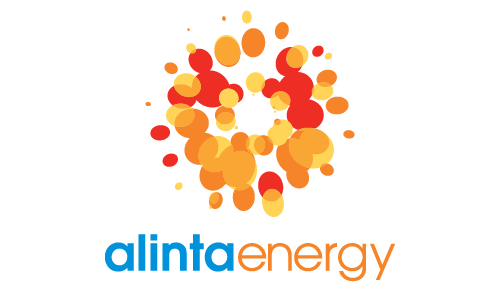Electricity plans set out how much you’ll pay for the power you use as agreed with your electricity retailer. These contracts outline your usage rates, supply charges, contract length and any discounts or special offers.
The range of plans available to you varies depending on where you live in Australia:
- In NSW, VIC, SA, SE QLD, the ACT and TAS, the electricity market is deregulated. This means retailers compete for your business, giving you the chance to shop around for the most competitive deals.
- In the NT and regional QLD, prices are regulated by the government. While you may have some choice of provider, the cost of electricity tends to be the same across the board.
- WA is the most regulated market, where most residential customers cannot choose their electricity retailer at all, and both pricing and competition are government-controlled.
If you live in NSW, VIC, SA, SE QLD, the ACT or TAS, you can use Savvy’s free service to compare electricity providers side by side and find a plan that best suits your needs.
Find a cheaper electricity plan
What is the average electricity bill in Australia?
Using current standing offer prices across each state and territory, we’ve calculated that the average annual electricity bill for a three-person household consuming about 5,000 kWh is approximately $1,994, which works out to around $166 per month.
However, this amount varies depending on where you live in Australia, as prices differ between regions and electricity markets.
If you’re paying more than this for less electricity and live in an area where you can compare plans, it might be worth shopping around for a better deal.
The difference between the cheapest and most expensive electricity plan on the market ranges from $280–$522 depending on which state or territory you live in. Unless you compare every six to 12 months, you're likely overpaying.
Electricity price rise 2026
In July 2025, the Australian Energy Regulator (AER) increased the Default Market Offer (DMO) – the benchmark electricity price in New South Wales, South Australia and South East Queensland – with some households facing price hikes of up to 9.7%. Other states also increased their standing offer rates.
While prices went up, the Government’s Energy Bill Relief Fund helped ease the impact for many households during 2025, providing a $150 rebate on electricity bills in the latter half of the year.
However, from January 2026, Australians will see their electricity bills increase by $75 per quarter due to scheme coming to an end.
On top of this, the annual adjustment to the DMO prices in July 2026 is likely to push prices up even further.
Types of electricity plans
In Australia, electricity plans fall into two categories:
- Standard contracts: also called ‘standing offers’, these are the default plans set by your state or territory’s energy regulator. These are available in all markets, both regulated and deregulated, and serve as a baseline offering. If you haven't actively chosen a market plan, you're likely on a standard contract.
- Market contracts: these are plans offered by electricity retailers in deregulated markets and give customers greater choice and the opportunity to shop around. These plans are designed to be competitive, with retailers able to offer different prices and other incentives. While market contracts can lead to cost savings, it’s important to review them regularly to ensure you’re still getting the best value electricity.
How are standing offer prices set in different states and regions?
Electricity standing offer prices across Australia are updated once a year on 1 July. However, each state and territory has its own regulator or government body responsible for setting these prices, and the standing offer itself has a different name in some regions.
| State/territory | How prices are set |
|---|---|
| NSW, SA and SE QLD | Prices are set through the Default Market Offer (DMO), regulated by the Australian Energy Regulator (AER). |
| VIC | Standing offer prices are set through the Victorian Default Offer (VDO), regulated by the Essential Services Commission (ESC). |
| Regional QLD | Prices are regulated by the Queensland Competition Authority (QCA). |
| ACT | Prices are regulated by the Independent Competition and Regulatory Commission (ICRC). |
| TAS | Prices are regulated by the Office of the Tasmanian Economic Regulator (OTTER). |
| NT | Prices are set under the Electricity Pricing Order, regulated by the Utilities Commission of the Northern Territory. |
| WA | Prices are set by the WA Government. There is no competitive residential electricity market. |
Understanding electricity tariffs
All electricity plans include a pricing structure known as a tariff. This determines how much you will be charged and can have a significant impact on your power bill.
Understanding the various tariff types can help you choose a plan that suits your household’s needs and usage patterns – and avoid bill shock down the line.
Your tariff is split into two parts:
Supply charge: this is a set daily charge for electricity supply to your home. This amount stays the same regardless of how much electricity you use but it can vary between plans.
Usage charge: this is the amount you pay for the electricity you actually use, measured in kilowatt-hours (kWh). The rate can vary depending on your electricity retailer and the type of tariff you’re on.
Types of electricity tariffs
Here are some common types of electricity tariffs in Australia:
- Single rate (flat rate) tariff
You pay the same rate for electricity no matter when you use it. This type of tariff is simple and predictable, making it suitable for households with consistent energy use throughout the day. - Time of use tariff
Your electricity costs vary depending on the time of day. Peak periods – usually weekday evenings – have higher rates, while off-peak times like overnight or during the middle of the day are cheaper. Time of use may benefit households that can shift their usage to off-peak hours. - Block tariff
You pay different rates depending on how much electricity you use. For example, the first block of daily usage (e.g. up to 10kWh) may be charged at a lower rate, while usage above that is charged at a higher rate. This structure can penalise heavy energy users. - Controlled load tariff
This tariff applies to specific appliances (such as electric hot water systems or pool pumps) connected to a separate meter. These appliances are powered during off-peak times, and electricity is charged at a lower rate. It’s only available if your property has a controlled load circuit. - Demand charge tariff
This is an additional charge applied based on your highest usage during a specific period (usually a half-hour window) each day or billing cycle. It’s often used in conjunction with flat or time of use tariffs and is most common for large households or properties with high demand at once. - Feed-in tariffs
If you have solar panels, any excess electricity you generate and don’t use can be fed back into the grid in exchange for a credit on your bill. Feed-in tariffs vary between providers and states – rates in 2025 range from under 1c to around 12c per kWh.

Why knowing your tariff matters
"I recently moved into my brand-new home. Without even thinking, I jumped online to compare electricity plans to ensure I was on a cheap rate. However, it wasn’t until my first electricity bill arrived that I realised I was, in fact, on a time of use plan. I immediately contacted my retailer and requested to be moved over to a single rate tariff plan, but found out that as I had a smart meter, I was deemed ineligible.
I’ve now done my best to change my behaviour to keep my electricity usage to the off-peak period to keep my bill down. But it isn’t so easy. I’ve made use of the timers on my washing machine and dishwasher to run during the off-peak time. Other things I can’t control, like using the oven to cook dinner or using the air conditioner after I get home from work if it’s a hot day."

What is time of use electricity?
Time of use electricity pricing means the rate you pay for power changes depending on when you use it. These plans divide the day into different time periods – peak, off-peak and sometimes shoulder or solar sponge periods – reflecting when demand on the grid is highest or lowest.
- Peak: when demand is highest, usually on weekday afternoons and evenings. These are the most expensive times to use electricity.
- Off-peak: when demand is lowest, often overnight or early morning hours. Electricity is cheaper during these times.
- Shoulder: falls between peak and off-peak times, offering a moderate electricity rate, though it is not included by all distributors.
- Solar sponge: in some states, extra low-cost ‘solar sponge' pricing encourages electricity use when solar generation is highest, typically from 10:00 am to 3:00 pm.
These time periods aren’t set by your electricity retailer, but by your local energy distributor, and the exact time blocks vary depending on where you live and the time of year. The table below shows peak, off-peak and shoulder times across different states/territories and networks.
| State/territory | Distributor | Peak times | Off-peak times | Shoulder/solar sponge |
|---|---|---|---|---|
| ACT | Evoenergy | 7:00am – 9:00am and 5:00pm – 9:00pm, every day | 9:00pm – 7:00am, 9:00am – 11:00am and 3:00pm – 5:00pm, every day | 11:00am – 3:00pm, every day |
| NSW | Ausgrid | 3:00pm – 9:00pm, June – August and November – March, every day | All times, April, May, September and October 9:00 pm – 3:00 pm, June – August and November – March | – |
| Endeavour Energy | 4:00pm – 8:00pm, weekdays | 2:00pm – 4:00pm and 8:00pm – 10:00am, weekdays2:00pm – 10:00am, weekends and public holidays | 10:00am – 2:00pm, every day | |
| Essential Energy | 5:00pm – 8:00pm, weekdays | 10:00pm – 7:00am weekdays All weekend, from 10:00pm Friday – 7:00am Monday | 7:00am – 5:00pm and 8:00pm – 10:00pm, weekdays | |
| NT | Power and Water Corporation | 6:00am – 6:00pm, weekdays and public holidays | 6:00pm – 6:00am, weekdays All day weekends | – |
| QLD | Energex Ergon Energy |
4:00pm – 9:00pm, every day | 11:00am – 4:00pm, every day | 12:00am – 11:00am and 9:00pm – 12:00am, every day |
| SA | SA Power Networks | 6:00am – 10:00am and 4:00pm – 12:00am, every day | 12:00am – 6:00am, every day | 10:00am – 4:00pm, every day |
| TAS | TasNetworks | 7:00am – 10:00am and 4:00pm – 9:00pm, weekdays | All other times | – |
| VIC | CitiPower Powercor Ausnet Jemena United Energy |
3:00pm – 9:00pm, every day | 9:00pm – 3:00pm, every day | – |
| WA | Western Power | 3:00pm – 9:00pm, every day | 9:00pm – 9:00am, every day | 9:00am – 3:00pm, every day |
| Information correct as of November 2025 | ||||
The role of smart meters
To be eligible for a time of use plan, you’ll need a smart meter. This is a digital electricity meter that records your home’s energy use in near real time – usually every five to 30 minutes – and automatically sends this information to your energy retailer.
Unlike traditional meters, which only show the total amount of electricity used, smart meters provide a detailed breakdown of your usage, helping you track when and how you use power throughout the day and allows your retailer to bill you based on when you use power, not just how much you use.
The Australian Energy Regulator (AER) estimates that 1.5 million households across NSW, QLD and SA are now on a dynamic tariff like time of use. That number will only continue to increase as the Australian Energy Market Commission (AEMC) pushes ahead with its goal for all households in National Electricity Market (NEM) regions to be fitted with a smart meter by 2030. As of November 2024, more than 56% of meters in these areas are read remotely.
Single rate vs time of use electricity plans
The two main types of usage tariffs in Australia are single rate and time of use. Here’s how they compare:
| Single rate plan | Time of use plan | |
|---|---|---|
| Rates | Consistent pricing with the same rate per kWh at all times | Different rates for peak, off-peak and shoulder periods |
| Smart meter required? | No | Yes |
| Benefits | ✓ Simple, predictable bills ✓ Often cheaper than peak rates ✓ No need to change energy usage habits |
✓ Off-peak usage can save money ✓ Encourages efficient energy use ✓ Ability to track usage gives more control |
| Drawbacks | ✖ May miss out on off-peak savings ✖ Hard to track usage without a smart meter |
✖ More expensive during peak hours ✖ Requires careful energy management |
| Best suited for | Households with consistent energy use throughout the day or those who prefer predictable pricing | Households with flexible usage patterns who can shift energy-intensive activities to off-peak times |
Can I switch my electricity tariff?
Your ability to change your electricity tariff depends on where you live, the type of meter you have and what your retailer offers.
While your distributor sets the underlying network tariff that retailers are charged, your electricity retailer decides which tariff they pass on to you – whether that’s a flat rate or time of use tariff.
In the NT and WA, the default tariff remains a flat rate. However, in most other parts of Australia, time of use or demand tariffs are becoming the standard.
If you have an older meter that can’t be read digitally, you’ll generally be placed on a flat rate tariff. For households with newer digital or smart meters, time of use tariffs are usually applied automatically. In some areas, flat rate tariffs are no longer available for new connections.
You can contact your retailer anytime to find out which tariff you’re on or to ask about switching. Many regions allow one free network tariff change per year, but this must be arranged through your retailer – and they may not always approve every request.
How to compare electricity plans
-
Price
Look at both usage rates and supply charges. Some plans may have low usage rates but high supply charges or vice versa, so consider the total cost based on your average usage.
-
Tariff type
If you can, choose the tariff that suits your usage pattern. Time-of-use tariffs can save money if you use electricity during off-peak hours, while flat-rate tariffs may work better for consistent usage.
-
Discounts
Many retailers offer discounts for sign-up or bundling services like gas or internet. Check how long discounts last and any eligibility rules to make sure the deal is worthwhile.
-
Fees
Watch out for extra fees such as connection, disconnection, late payment or early exit fees that can add to your bill.
-
Solar feed-in rates
If you have solar panels, you could earn for sending excess solar energy back to the grid. A higher feed-in rate can be good, but check the overall plan costs, as some plans with high feed-in rates may have higher usage charges.
-
Provider reputation
Consider customer service, reliability and ease of managing your account (such as apps or online portals).
Why compare energy plans through Savvy?
100% free to use
You won't need to pay a cent to compare a variety of energy plans online through Savvy. It's 100% free.
Simple online quotes
By filling out your form and providing a recent energy bill, you can have all the facts and figures worked out for you.
Choice of leading providers
When you fill out your quote, you'll be able to consider offers from some of the leading energy providers in Australia.
How to switch electricity plans through Savvy
-
Complete the online form
Provide information about where you live and your energy needs.
-
Compare electricity plans
Browse energy deals from providers in your area.
-
Make the switch
Choose your plan and your electricity will be switched over in 24 to 48 hours.
Find a cheaper electricity plan
How to read your electricity bill
Your electricity bill sets out key information about your plan, your usage and how much you owe. Although each retailer’s bill looks a little different, most will include the following:
Page 1
- Your account details
- How much you owe and when it’s due
- A “better offer” message showing whether you could save by switching to another plan
- Ways to pay your bill
Pages 2 and 3
- A detailed breakdown of your usage and charges
- A summary of your tariff so you can see where costs are coming from
- Your average daily usage compared with the same period last year
- Information on support options if you’re struggling to pay or may be eligible for concessions
When you get your bill, it’s worth looking beyond the summary on page 1, especially if the amount is higher than you expected. Reading the full breakdown can help you understand how you use electricity, where you’re spending the most and whether a different plan might suit you better.
Tips to save on your electricity bill
-
Choose energy-efficient appliances
Appliances that are more energy efficient can be significantly cheaper in the long run – especially for items like fridges, washers and dryers that run frequently or continuously.
-
Switch your lighting
LED bulbs last longer and are more energy efficient than old-style incandescent or halogen globes, reducing both replacement costs and energy bills.
-
Be mindful of AC usage
Heating and cooling are major energy drains – and air conditioning can significantly increase your bills during peak months. To reduce costs, try to limit AC use by adjusting the temperature settings and consider lower cost alternatives like fans and extra layers to stay cool or warm.
-
Install solar panels
Installing rooftop solar can help you generate your own electricity and reduce what you pay to your provider – and you can sell excess energy back to the grid.
-
Watch your usage
If you’re on a time of use plan, try running appliances during off-peak periods when rates are lower and monitor your usage to see where you could make changes.
-
Check your energy plan regularly
Electricity rates change, which means you could be paying more if you've stayed on the same plan for a while. Compare electricity plans at least once a year to make sure you're on the best deal.
- Final determination on 2025–26 safety net prices for NSW, SA and SE QLD - Australian Energy Regulator
- Energy Bill Relief Fund - Energy.gov.au
- Electricity retailers label complex power prices 'perverse' as industry goes to war with itself - ABC News
- AEMC on smart meters: 100% by 2030, new customer information, real-time data and protections - AEMC
- AEMC finalises landmark reform to accelerate smart meter rollout - AEMC
- More Australian homes to get access to solar power - Department of Clinate Change, Energy, the Environment and Water
- Time of use vs single rate tariff - Finder
- Renewable energy made easy - GreenPower
- Cheaper Home Batteries Program - Department of Clinate Change, Energy, the Environment and Water
















